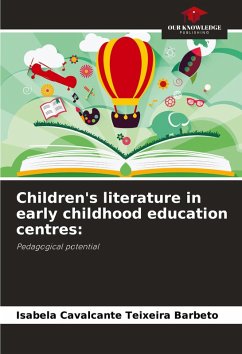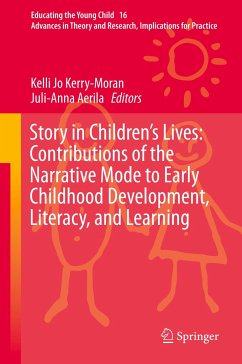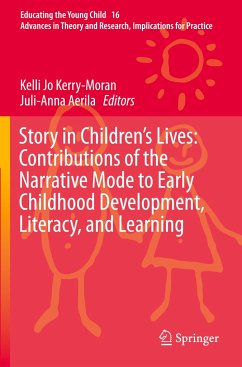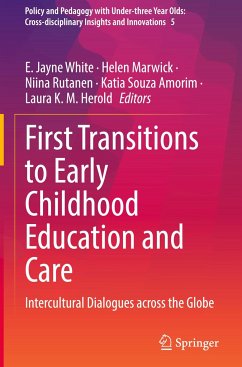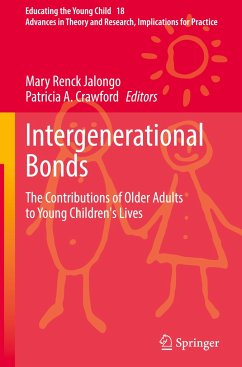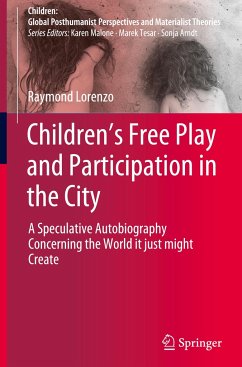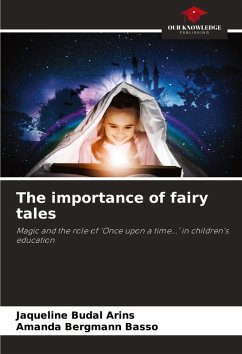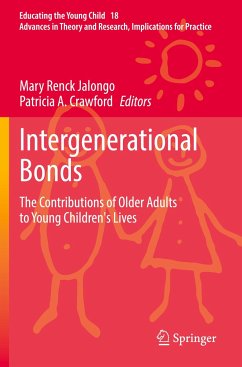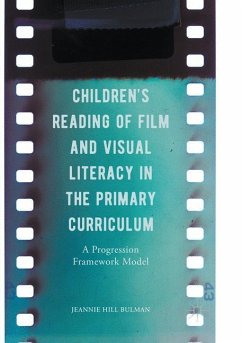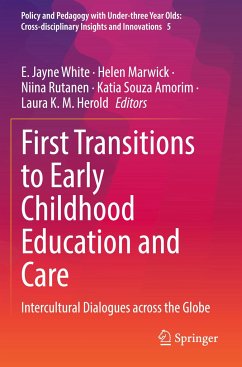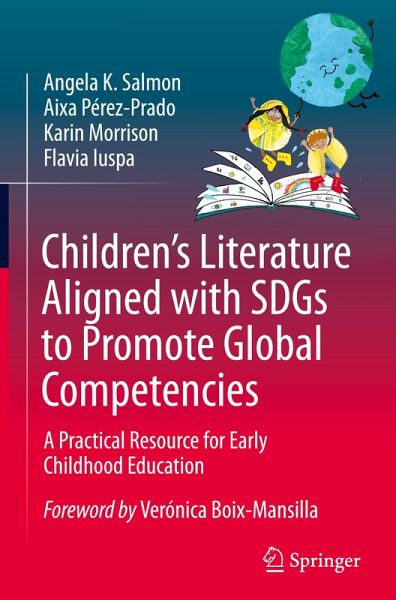
Children's Literature Aligned with SDGs to Promote Global Competencies
A Practical Resource for Early Childhood Education
Mitarbeit: Boix-Mansilla, Verónica

PAYBACK Punkte
23 °P sammeln!
This book presents children's literature as a platform for learning and helping young readers develop the knowledge, skills, and attitudes needed to thrive in an interconnected and diverse global society. It draws from various theoretical frameworks and research findings to implement critical literacy and culturally responsive teaching in the meaning-making process.The book focuses on global competencies and Sustainable Development Goals (SDGs) as intertwined concepts that work together to foster a more sustainable, inclusive, and equitable world. Developing global competencies empowers childr...
This book presents children's literature as a platform for learning and helping young readers develop the knowledge, skills, and attitudes needed to thrive in an interconnected and diverse global society. It draws from various theoretical frameworks and research findings to implement critical literacy and culturally responsive teaching in the meaning-making process.
The book focuses on global competencies and Sustainable Development Goals (SDGs) as intertwined concepts that work together to foster a more sustainable, inclusive, and equitable world. Developing global competencies empowers children and communities to actively participate in achieving the SDGs and addressing the pressing challenges of our time. The authors set high expectations on children as actors in transforming society. To facilitate this, the book offers an overview of child development theories as a foundation for designing developmentally appropriate practices to extend children's books toward deepthinking and understanding. The book includes sample lessons that use cutting-edge research-based pedagogies and tools such as visible thinking routines and other approaches. Those lessons also help readers identify the Habits of Mind (HOM) children can develop by listening to and discussing stories. The HOM are attributes of good problem-finders and problem-solvers needed when confronting complex issues. The book provides resources and sample lessons that implement different thinking strategies to engage children in questioning and analyzing what they read, making them more critical. This is how children deeply understand the world and their role in creating positive change. The book aims to cultivate change-makers and global citizens through stories. It offers innovative approaches, including online learning options in accessible and engaging ways to help children think globally and act locally
'Through the power of children's literature, this book serves a larger agenda: To build a more thoughtful world for future generations. By caring for and learning from one another through suggested activities in this book, they will share the riches and resources from across the world. As children learn about the promise of actions toward the UN Sustainable Goals, they can imagine living in an interdependent learning community where all people continually searching for ways to trust each other, learn together, and grow toward greater intelligence.'
Arthur Costa and Bena Kallick, Co-Founders and Directors of The Institute for Habits of Mind
The book focuses on global competencies and Sustainable Development Goals (SDGs) as intertwined concepts that work together to foster a more sustainable, inclusive, and equitable world. Developing global competencies empowers children and communities to actively participate in achieving the SDGs and addressing the pressing challenges of our time. The authors set high expectations on children as actors in transforming society. To facilitate this, the book offers an overview of child development theories as a foundation for designing developmentally appropriate practices to extend children's books toward deepthinking and understanding. The book includes sample lessons that use cutting-edge research-based pedagogies and tools such as visible thinking routines and other approaches. Those lessons also help readers identify the Habits of Mind (HOM) children can develop by listening to and discussing stories. The HOM are attributes of good problem-finders and problem-solvers needed when confronting complex issues. The book provides resources and sample lessons that implement different thinking strategies to engage children in questioning and analyzing what they read, making them more critical. This is how children deeply understand the world and their role in creating positive change. The book aims to cultivate change-makers and global citizens through stories. It offers innovative approaches, including online learning options in accessible and engaging ways to help children think globally and act locally
'Through the power of children's literature, this book serves a larger agenda: To build a more thoughtful world for future generations. By caring for and learning from one another through suggested activities in this book, they will share the riches and resources from across the world. As children learn about the promise of actions toward the UN Sustainable Goals, they can imagine living in an interdependent learning community where all people continually searching for ways to trust each other, learn together, and grow toward greater intelligence.'
Arthur Costa and Bena Kallick, Co-Founders and Directors of The Institute for Habits of Mind



